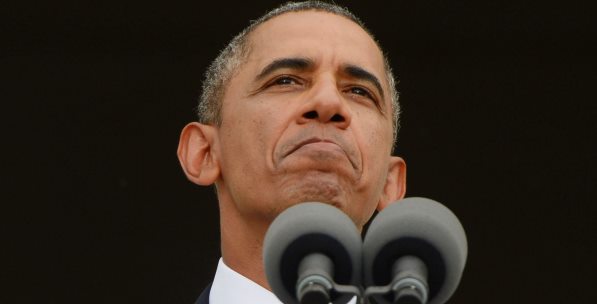The United States (US) has finally begun to review its policy of inaction in the Syrian crisis after the use of chemical weapons. Since the answer to the question of “What will the US do?” is “The President is evaluating alternatives”, when and how the US will give a solid response to Syria still remains unknown. Both through the White House spokesperson and an interview to the PBS television last week, US President Barack Obama already signaled that they will take a different position from now on and said that they have no doubt about the use of chemical weapons by the Assad regime. Although this development has pushed the US administration to take action in the international arena, it does not seem to make a big difference in the US approach to the issue in terms of strategy. The US policy in Syria has been inaction and avoiding intervention so far; but as a result of the chemical attack, it flips between a forced reaction and an involuntary intervention.
The worse is that the Obama administration, as a global power, needs to be the center of full-scale discussions based on long term sustainable strategy over Syria, but it is lost in a convoluted rhetoric of wishes and expectations. For this reason, speculations following the chemical attack are based, rather than a long term policy, on how the intervention will be, who will join it, how many days it will last, and which weapons will be used. This lays bare a situation in which tactical and operational debates determine the agenda.
As no one can make a descent projection so far about how a limited and operational military intervention will change the balances in the field and the course of the civil war, it is often stated that deterrence on the use of chemical weapons is the objective. The US administration, however, harms the importance of deterrence considerably by insisting to say that a regime change is not aimed by a possible attack. In fact, following the chemical attack, the precipitation shown by the US creates the impression that this is not about the deaths of hundreds of thousands people and the clashes of the last two years, but as Obama put it, about the wish to prove that the use of chemical weapons has international consequences or about the system’s retaliation to the chemical attack. In the current picture, therefore, it is a bit more optimism to think that the real purpose of a military intervention is to stop the civil war and force the parties to sit down for a truce.
THE REASON FOR INACTION
The reason for the US’ “strategic abstention” in Syria is that Obama’s priority right now is not the Middle East but the “middle class”, as Aaron David Miller put. The Obama administration delivering speeches in recent weeks in different US cities and aiming reforms in education, frowns on a policy in Syria with a high risk of high cost and a low economic return. Furthermore, an international issue not directly linked to the US’ economic interests is not much valuable considering that Obama took his most important trips in the new term to Asian and African countries. He set Asia and Pacific region as the new center of the new foreign policy orientation and tries to have warm relations with the developing African economies. In addition to this, the quagmire created by the Iraq war, the chaos after the intervention in Libya and the assassination of the US ambassador to Libya – though all occurred in different contexts – will be kept in mind while a decision about Syria is finalized. President Obama wants to avoid these types of problems as much as he can as he did not have to pay for the cost of a possible international crisis during his three years at the White House.
CONFUSION IN DECISION MECHANISMS
Lastly, another complexity regarding the US policy in Syria is experienced in the decision making mechanisms. Contradictory statements which have become apparent following the July 3 military coup d’état in Egypt, and inconsistencies



